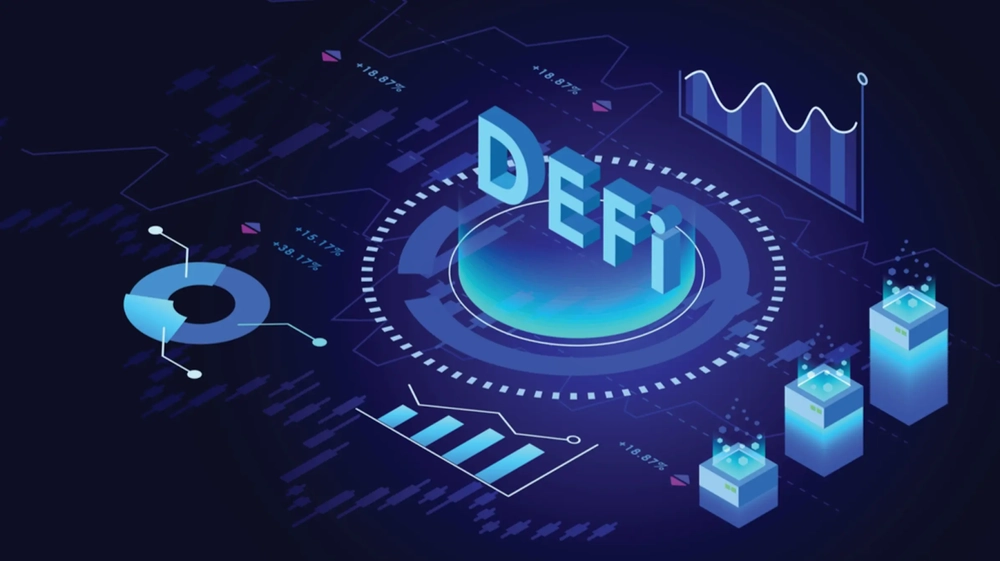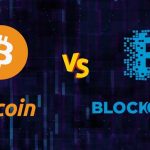Decentralized Finance (DeFi): Revolutionizing the Financial Landscape
In recent years, the world of finance has been disrupted by the emergence of a groundbreaking technology known as Decentralized Finance, or DeFi. DeFi represents a paradigm shift in the way financial systems operate, offering an open and permissionless ecosystem that leverages blockchain technology to provide users with unprecedented control over their financial assets and transactions. In this article, we will explore what DeFi is, how it works, its key components, and the potential impact it can have on the traditional financial landscape.
Understanding DeFi:
DeFi refers to a set of financial applications and protocols built on decentralized networks like Ethereum, which enable individuals to engage in various financial activities without the need for intermediaries such as banks, brokers, or central authorities. By leveraging smart contracts, DeFi platforms aim to automate and streamline traditional financial services, including lending, borrowing, trading, asset management, and more.

Key Components of DeFi:
Smart Contracts
Smart contracts are self-executing agreements that are written in code and automatically execute predefined conditions without the need for intermediaries. In DeFi, smart contracts play a crucial role in automating financial operations, ensuring transparency, and eliminating the need for trust in counterparties.
Decentralized Exchanges (DEXs)
DEXs are platforms that enable users to trade cryptocurrencies directly with one another without relying on a centralized intermediary. These exchanges utilize liquidity pools and automated market-making algorithms to facilitate peer-to-peer trading, providing users with greater control over their funds and reducing the risk of hacks or manipulation.
Lending and Borrowing Platforms
DeFi lending and borrowing platforms allow users to lend or borrow digital assets through smart contracts. Users can earn interest on their crypto holdings by supplying liquidity to the lending pools, while borrowers can access loans without the need for traditional credit checks or collateral requirements.
Stablecoins
Stablecoins are cryptocurrencies designed to maintain a stable value by pegging their price to a fiat currency or other tangible assets. Stablecoins play a critical role in DeFi by providing users with a reliable unit of account, facilitating seamless transactions, and reducing exposure to the volatility of other cryptocurrencies.
Decentralized Asset Management
DeFi platforms also offer decentralized asset management solutions, where users can invest their digital assets into various yield-generating strategies, such as liquidity mining, staking, or yield farming. These platforms provide users with opportunities to earn passive income by participating in the network’s activities.
Also read: How to Invest in Web3
Benefits and Potential Impact:
DeFi offers several advantages over traditional financial systems, including:
- Accessibility: DeFi platforms are open and accessible to anyone with an internet connection, allowing individuals from all over the world to participate in financial activities without the need for a bank account or other traditional financial infrastructure.
- Transparency: The use of blockchain technology ensures transparency and immutability of transactions, allowing users to verify and audit the financial operations performed on DeFi platforms. This transparency helps build trust and reduces the risk of fraud or manipulation.
- Financial Inclusion: DeFi has the potential to provide financial services to the unbanked and underbanked populations who lack access to traditional banking systems. With only a smartphone and an internet connection, individuals can participate in lending, borrowing, and investment activities.
- Reduced Costs: By eliminating intermediaries and automating processes, DeFi platforms can significantly reduce transaction fees and operational costs compared to traditional financial systems. This cost-efficiency benefits both users and businesses operating within the DeFi ecosystem.
- Innovation and Experimentation: DeFi is a rapidly evolving field that fosters innovation and experimentation. Developers can build new financial applications on existing DeFi protocols, leading to the creation of novel financial instruments, decentralized insurance, prediction markets, and more.
However, it is important to note that DeFi is still in its early stages, and there are risks associated with it. Smart contract vulnerabilities, regulatory uncertainties, and market volatility are some of the challenges that need to be addressed for wider adoption and mainstream integration.
Also read: Web3 Gaming Event
What is DeFi Crypto
DeFi cryptocurrencies are digital assets that enable individuals to engage in various financial activities, such as lending, borrowing, trading, and investing, without the need for intermediaries like banks or financial institutions.
DeFi crypto tokens are typically built on blockchain platforms such as Ethereum, which provide the infrastructure and smart contract functionality necessary for the development and execution of decentralized financial applications. These tokens serve as the native currencies or utility tokens within the DeFi ecosystem, facilitating transactions and interactions within the decentralized applications (dApps) and protocols.
DeFi crypto tokens can have different purposes and functionalities within the ecosystem. Some of the common types of DeFi tokens include:
Governance Tokens
These tokens enable holders to participate in the governance and decision-making processes of a DeFi protocol. Token holders can vote on proposals, changes to the protocol, or allocation of funds.
Utility Tokens
Utility tokens are used to access and utilize specific services or features within a DeFi platform. For example, they may be required to pay transaction fees, access premium features, or participate in yield-generating activities.
Stablecoins
Stablecoins are cryptocurrencies that are designed to maintain a stable value by pegging their price to a fiat currency, a basket of assets, or through algorithmic mechanisms. Stablecoins play a crucial role in DeFi by providing a reliable unit of account and facilitating seamless transactions within the ecosystem.
Liquidity Tokens
In decentralized exchanges (DEXs), liquidity tokens are issued to users who provide liquidity to the trading pools. These tokens represent the users’ share of the pool and can be redeemed for their proportional share of the fees generated by the DEX.
Yield Farming Tokens
Yield farming involves users locking or staking their cryptocurrency assets in DeFi protocols to earn additional tokens as rewards. These reward tokens can be traded or sold on various platforms, providing users with additional income streams.
Also read: Alien Worlds: The Blockchain-Based Collectable NFT Metaverse Game
How to Invest in DeFi
Investing in DeFi (Decentralized Finance) can provide opportunities for individuals to participate in the growing ecosystem and potentially earn attractive returns. Here’s a brief guide on how to invest in DeFi:
- Research and Education: Start by educating yourself about the fundamentals of DeFi, including understanding the different protocols, tokens, and risks involved. Stay informed about the latest developments, trends, and potential investment opportunities within the DeFi space.
- Selecting a Wallet: To invest in DeFi, you’ll need a cryptocurrency wallet that supports the tokens and protocols you’re interested in. Choose a reputable wallet that offers security, ease of use, and compatibility with the DeFi platforms you wish to engage with.
- Due Diligence: Thoroughly research the DeFi projects and tokens you’re considering investing in. Examine factors such as the team behind the project, the technology and security features, the tokenomics, and the roadmap. Look for audits, reviews, and community feedback to gain insights into the project’s legitimacy and potential.
- Diversification: Spread your investments across different DeFi projects and tokens to mitigate risks. Diversification can help reduce exposure to any single project’s success or failure and potentially maximize your chances of benefiting from successful ventures.
- Understand the Risks: Investing in DeFi carries risks, including smart contract vulnerabilities, market volatility, regulatory uncertainties, and potential hacks. Be aware of these risks and invest only what you can afford to lose. Consider consulting with a financial advisor or experienced investors to get additional insights and guidance.
- Start Small and Test the Waters: Begin with a small investment to familiarize yourself with the DeFi ecosystem. Gradually increase your exposure as you gain confidence and learn more about the intricacies of DeFi investing.
- Stay Updated and Monitor Investments: Continuously monitor your investments and stay updated on the market conditions and developments. Stay vigilant for any news, updates, or changes that could impact your investments.
- Security Measures: Implement robust security measures to protect your investments. Use strong passwords, enable two-factor authentication, and be cautious of phishing attempts or suspicious links. Be mindful of the platforms and protocols you interact with, ensuring they have a solid security track record.
- Consider Staking and Yield Farming: Explore opportunities for staking or yield farming, which can allow you to earn additional tokens or rewards by providing liquidity or participating in DeFi protocols. However, thoroughly understand the risks and rewards associated with these activities before engaging in them.
- Stay Informed and Evolve: The DeFi landscape is constantly evolving, with new projects and innovations emerging regularly. Stay informed, adapt to market changes, and be open to learning and evolving your investment strategies accordingly.
Remember, investing in DeFi involves risks, and it’s essential to exercise caution, conduct thorough research, and make informed decisions. Consider seeking professional advice and always do your own due diligence before investing in any DeFi project or token.
Also read: NFT Games: A New Frontier in the Gaming Industry
What is a DeFi Wallet
A DeFi wallet, also known as a decentralized finance wallet, is a digital wallet that enables users to manage and interact with decentralized finance applications and protocols. DeFi wallets are designed to provide users with full control over their funds and allow them to engage in various decentralized financial activities without relying on intermediaries like banks or traditional financial institutions.
These wallets are typically non-custodial, meaning that users retain ownership and control of their private keys, which are necessary to access and manage their funds. By controlling their private keys, users can securely store, send, and receive various cryptocurrencies and digital assets, as well as participate in decentralized lending, borrowing, staking, yield farming, and other DeFi activities.
DeFi wallets often integrate with decentralized applications (DApps) that operate on blockchain platforms like Ethereum, Binance Smart Chain, or other compatible networks. They provide a user-friendly interface to interact with these DApps, allowing users to manage their DeFi positions, track their assets, and execute transactions directly from the wallet.
It’s important to note that while DeFi wallets offer greater control and privacy to users, they also come with increased responsibility. Users must safeguard their private keys and exercise caution to avoid falling victim to phishing attacks or other security risks.
Also read: Best Web3 Games of 2023
Conclusion:
Decentralized Finance (DeFi) is revolutionizing the financial landscape by introducing an open, transparent, and accessible framework for financial activities. With its potential to democratize finance, increase financial inclusion, and reduce costs, DeFi has garnered significant attention and investment in recent years. While challenges remain, the growing ecosystem of DeFi applications and protocols promises to reshape traditional finance and empower individuals with greater control over their financial lives. As the technology continues to mature and evolve, it will be fascinating to witness the transformative power of DeFi in the years to come.












